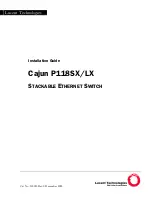H3C MSR 5600, Configuration Manual
The H3C MSR 5600 is a powerful router designed for advanced networking needs. With the latest Comware 7 software, users can easily configure VXLAN settings using the comprehensive command reference manual. Download it for free from our website and unleash the full potential of your network infrastructure.

















